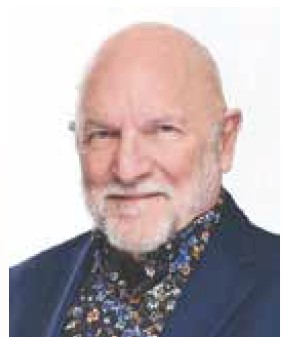
By Dr. Tim Seelig–
You know how ear worms pop up randomly? Well, I’ve had one buzzing around for several weeks. It’s the 1964 hit “The Times They Are A-Changin’” by the legendary Bob Dylan. Singing along reminded me, once again, of my senior status. I decided more of my future articles need to embrace that. Thinking about that, I swapped out Mr. Dylan for the Flintstones singing, “We’ll have a gay old time.” Emphasis on gay and old. I’m working on titles for the series: “Thoughts from my Recliner,” or just, “Get Off My Lawn.” This is the right of all septuagenarians. We earned it.


Some might argue we are experiencing the greatest period of social upheaval in our nation’s short history. Some of us, including Mr. Dylan, might argue it was the 1960s! I was alive for that one, too. It was a mess. I think the 2020s may have eclipsed the ’60s and we’re not even done yet.
To say the 1960s were rough is an understatement. The decade began with unimaginable tragedy. The Great Chinese Famine cost an estimated 76 million lives—impossible to grasp. That was followed by world-shattering political assassinations, the civil rights movement, riots, the Vietnam War, and antiwar protests.

\All that pain sparked a counterculture, “Make Love Not War.” In 1968, my church youth choir traveled from Fort Worth, Texas, on a mission trip all the way to San Francisco. Our goal was to save the hippies from their wicked ways. When I first saw them from our bus window, I didn’t want to save them. I wanted to join them. Over 40 years later, I moved to San Francisco and was now happily outside that bus. I was apparently the one that now needed saving.
Even though the world was falling apart around us, we still managed to be a “kinder, gentler” people. We were taught to respect fellow humans. We weren’t afraid to walk down the sidewalk or drive on the roads. I often picked up hitchhikers on my trip to and from college. One was heading to a commune where he lived. As I dropped him off, he invited me to stay for communal dinner. My mind was blown by the love dripping all over that place. They invited me to join them. It was tempting, but instead, I drove on to my rigid, rule-ridden Baptist college. Life would have been so different if I had sold all my worldly goods and joined them. I wouldn’t be writing this story.
That’s a very cursory overview of the dichotomy of the ’60s. Now, on to the 2020s. We have been divided into tribes (a word used differently at that time). It is a culture created by righteousness on both sides with too many factions to count. There seems to be no common ground. On the one hand, we are challenged to be more “woke,” more sensitive, more empathetic. On the other, empathy is gone, and we are ruled by disrespect, name-calling, and hate. We’ve turned deaf ears to the cries of people experiencing life challenges and issues we would have never ignored in decades past. We turn away from people dying and starving—here at home and in the middle of wars. Unlike the ’60s, we’ve also lost or have become numb to such words as gentler and kinder. Just this week, our political leaders crucified tech companies for killing children while ignoring guns altogether.
This past week, my husband Bobby Jo was on tour all over the country doing his thing. He is a singer/songwriter/poet—a bit of a Bob Dylan of our time, but with a better voice. He was enroute in his rental car from Fort Lauderdale to Orlando. About midway, he ran out of gas on the Toll Road at around 1 pm.
The closest gas station was an hour and fifteen-minute walk. These days, one should not leave an abandoned car on the freeway for very long. He started making phone calls. No gas stations would help. Tow trucks declined a service on a Florida turnpike. They gave him the number for a “road ranger,” a highway patrol service that helps stranded motorists. They said, “yes,” but they were very busy.
The rental car company would send roadside help for $400. He decided to wait for the road ranger to save him. Hours passed. It got dark. Hundreds of cars zoomed by. Not one stopped.

The road ranger arrived at 8:30 pm, 7 1/2 hours after his first call. The times they have indeed changed. In the before times, there is no way a person could sit stranded by the road for 7 1/2 hours and not have a single person, or policeman, or tow truck stop to see if they could help. We don’t trust anyone. We fear everything. We have become numb to the needs of others.
Lessons were learned. The obvious one is to check your gas tank, or battery meters, often. The larger lesson is for us to work at regaining empathy, even in a time when people have put on blinders—or blindfolds—to the needs of others. We need fewer blinders and no blindfolds.
Looking at these two decades, do I long for the “good old days”? No. Do I long for the days when people cared for each other instead of screamed at one another? Yes. Do I miss a time when we talked to each other—even across a fence? Yes. Do we have incredibly rough days ahead? Oh boy, do we.
Bob Dylan’s lyrics, “the times they are a-changin’,” are truer today than ever. We still need to find a glimmer of hope that they will change for the better.
See you from my porch soon.
Dr. Tim Seelig is the Conductor Laureate of the San Francisco Gay Men’s Chorus. http://www.timseelig.com/
Tears, Laughs and Conversation
Published on February 8, 2024
Recent Comments